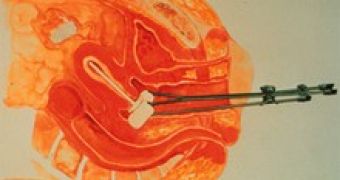Merck & Co. Inc.'s experimental vaccine to prevent infection from a virus that causes cervical cancer appears to be effective with no major safety concerns, U.S. regulatory staff said on Wednesday in documents released a day ahead of a key review.
The vaccine - Gardasil - was designed to prevent infection with certain types of the human papilloma virus, or HPV, which causes warts and most cases of cervical cancer - the second- biggest cancer killer in women. Some analysts project annual sales topping $2 billion if it wins approval.
Food and Drug Administration staff will present their analysis on Thursday to an advisory panel that is set to decide whether to recommend FDA clearance for Gardasil. The FDA usually follows the guidance of advisory panels.
A final FDA decision on whether to approve Gardasil is expected by June 8, putting Merck ahead of a potential rival vaccine by GlaxoSmithKline Plc. France's Sanofi-Aventis would market Gardasil in Europe if it wins clearance there.
Gardasil is an important product for Merck, as it faces thousands of lawsuits alleging harm from the company's withdrawn arthritis drug Vioxx.
The FDA staff analysis said reviewers agreed with Merck's findings that Gardasil prevented early stage cervical cancer and pre-cancerous lesions in the overall group of women and girls studied. The evaluation of potential side effects in Merck studies "did not demonstrate a safety signal of concern," the FDA staff also said.
The summary said it "remains a concern" that some women and girls who tested positive for HPV when they got the vaccine developed lesions that could become cancerous at higher rates than others who received a placebo shot. But there was some evidence that other factors such as smoking raised their risk, FDA staff said.
Two forms of sexually transmitted human papilloma virus, types 16 and 18, are responsible for an estimated 70 percent of cervical cancer cases and are the targets of Gardasil. Such cancers kill about 300,000 women worldwide each year, including almost 4,000 in the United States, Merck said.
The vaccine could reduce annual deaths from the disease to about 90,000 if it were used globally, the company said in a separate analysis also released by the FDA.

 14 DAY TRIAL //
14 DAY TRIAL //